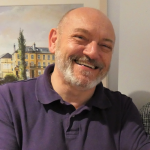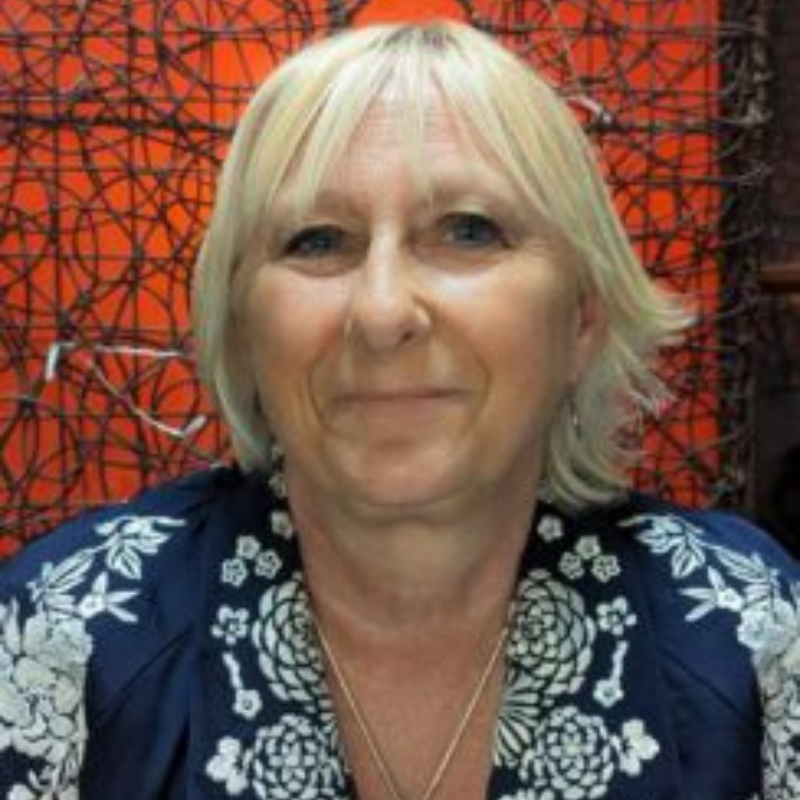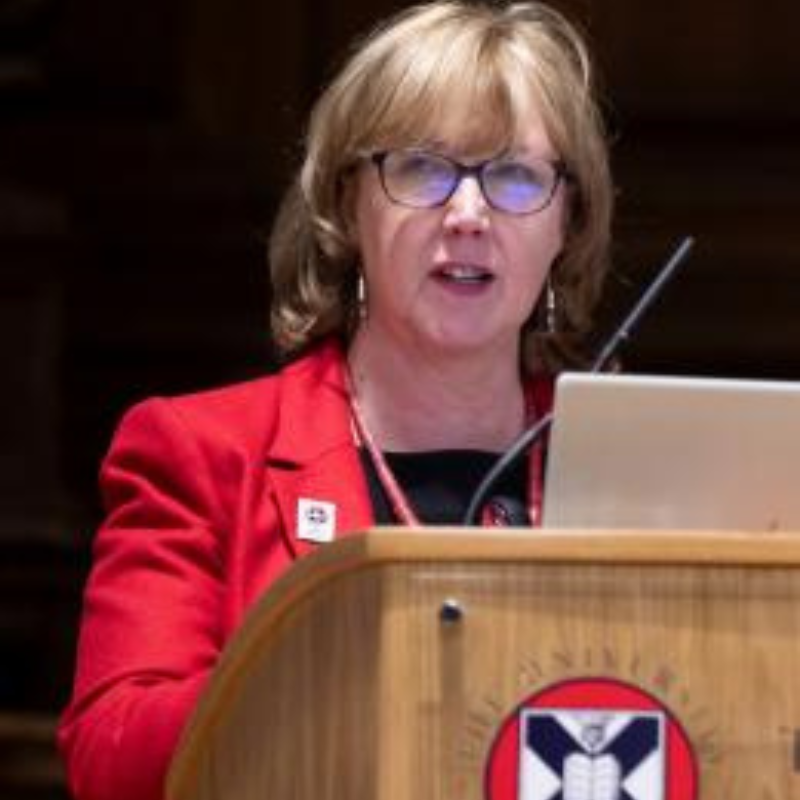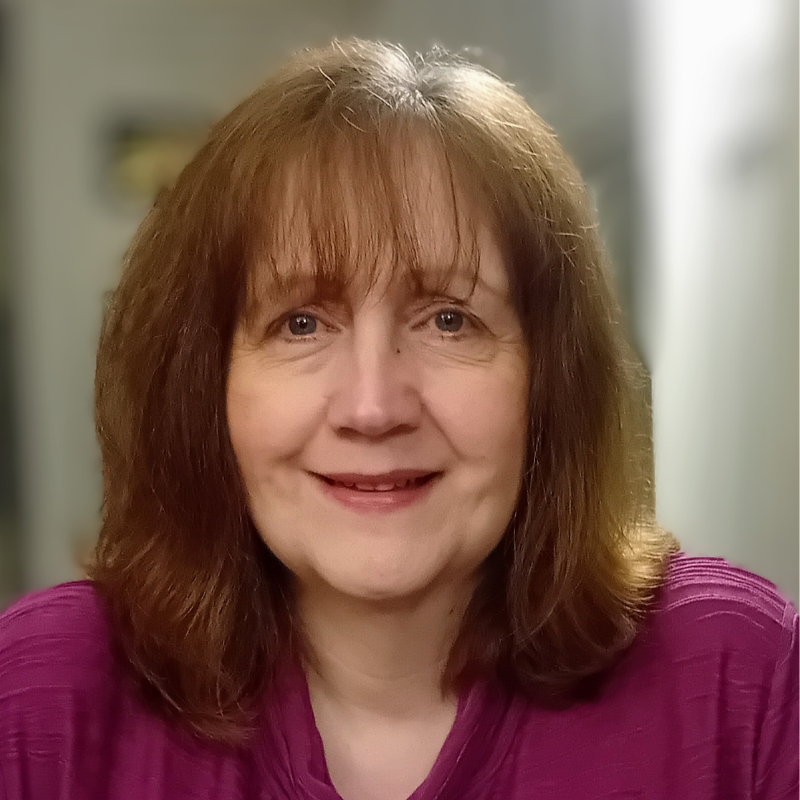Antisocial behaviour in Scotland features regularly in news reporting in a variety of different contexts. That it is taking place and is causing significant damage to the quality of life for both individuals and communities is not in dispute. The question is, who has the responsibility to tackle it, when should they be addressing it and how can this be given priority for both cure and prevention?
The antisocial behaviour that many communities in Scotland regularly face manifests in a wide variety of ways. From abuse of retail staff through to youth disorder. Violence and threatening behaviour to misuse of fireworks. Episodes of street crime and town centre misbehaviour which can range from shop lifting to intimidation. Antisocial behaviour taking place on buses, trains or occurring in housing settings. Problems associated with substance misuse. The list of ways in which antisocial behaviour is felt by its victims is long. At the extreme end of the spectrum this behaviour can be life altering for victims. At the other end of the spectrum, one person's antisocial behaviour may be another person's normal or reasonable lifestyle.
The Scottish Government set up the Independent Working Group on Antisocial Behaviour which reported and made recommendations in February of this year. Its purpose was to consider how effective the current approach to understanding and preventing antisocial behaviour is and "to develop a holistic, long term, strategic approach to improve the lives of communities across Scotland." The Group's report included five recommendations and eight calls for action. In its conclusion, the Group stated that "two approaches are required – firstly, prevention, to stop future antisocial behaviour, and the second, situational, to address behaviour as it happens."
This conference examines the nature of antisocial behaviour, the responses to it and the remedies available for both its prevention and reaction to its occurrences. Whose responsibility is this, what urgency and primacy will be given to the current recommendations and what can and should each agency with a role in tackling the issue do to assist?
It will focus on three themes:
Topics to be discussed
Who should attend
This conference is for anyone working in the private, public and voluntary sectors with a role in addressing antisocial behaviour in any setting. This includes:

Chief Executive
includem

Co-Chair
Independent Working Group on Antisocial Behaviour

Practitioner and Policy Support Manager
ASB Help

Deputy Head of Scottish Violence Reduction Unit
Scottish Violence Reduction Unit

Professor of Penology - Edinburgh Law School
The University of Edinburgh

Anti-social Behaviour Manager
South Lanarkshire Council
09:25 Chair's opening remarks
Martin Dorchester, Chief Executive, includem
includem2000 MDorchester1
Session 1: Understanding what antisocial behaviour is
09:30 Antisocial behaviour – what is it, where is it and who is it?
Prof Lesley McAra CBE FRSE, Professor of Penology - Edinburgh Law School, The University of Edinburgh
lesleymcara1
09:50 The recommendations of Scotland's Independent Working Group on Antisocial Behaviour
Lorraine Gillies, Co-Chair, Independent Working Group on Antisocial Behaviour
10:10 Delivering effective partnership working
David Sheil, Community Improvement Partnership (CIP) Manager, Wheatley Group
WheatleyHousing
10:30 Question and answer session
10:50 Comfort break
Session 2: What works, action and intervention
11:20 Early intervention and prevention – what really works?
Will Linden, Deputy Head of Scottish Violence Reduction Unit, Scottish Violence Reduction Unit
vruscotland
11:40 Recognising, measuring and reporting antisocial behaviour
Lorrainne Meek, Anti-social Behaviour Manager, South Lanarkshire Council
SouthLanCouncil
12:00 What is the UK antisocial behaviour action plan?
Mark Johnson, Practitioner and Policy Support Manager, ASB Help
asbhelp
12:20 Question and answer session
12:40 Chair's closing remarks
Martin Dorchester, Chief Executive, includem
includem2000 MDorchester1

Martin Dorchester
Chief Executive
includem
Martin Dorchester became Chief Executive of includem in March 2018. Previously Martin was the Group Chief Executive of the David MacBrayne Group, including CALMAC Ferries, Argyll Ferries Ltd and Solent Gateway.
In a career spanning 30 years Martin has operated nationally and internationally with organisations covering logistics, technology and finance. As CEO of Dixon's B2B operation Martin built up the largest Apple reseller business in the UK as well as developing a £100m public sector business. Martin was part of the team that brought the 5 radio authorities together to create Ofcom and worked with the London Borough of Hackney on developing its infrastructure for the 2012 Olympics. Martin is also a keen lecturer and academic and has written a number of papers covering areas as diverse as CSR and Emotional Intelligence in Management Development and more recently on children and young people.
Martin is a Co-chair of the Independent Care Review and a Non-executive Director of CCPS. He has held a number of non-executive roles including: Non-executive Director of Traveline Scotland, The Sailors' Orphan Society of Scotland and most recently Transport for Wales. He is a supporter of Social and Community Business and Chaired Firstport Ltd, a start-up funding organisation for social enterprises.

Lorraine Gillies
Co-Chair
Independent Working Group on Antisocial Behaviour
Lorraine Gillies is an independent freelance consultant with a portfolio that currently includes delivery of Planet Youth in Scotland – a preventative upstream approach focused around school communities, development of Crofthead Farm Community Development Trust and supporting the West Lothian Community Race Forum.
She was previously the Chief Executive Officer of the Scottish Community Safety Network – a professional membership network for community safety practitioners and agencies across Scotland.
Her background includes executive level roles in West Lothian Council, where she led the development of an outcomes approach to council services; Audit Scotland, and included responsibility for the National Audit on Self Directed Support and creation of the Community Empowerment and Diversity and Inclusion Advisory Boards and extensive work with charities including Cyrenians, Scottish Drugs Forum, and Foursquare Scotland
She is a pioneer of flexible working, has successfully implemented a four-day week and promotes trauma-informed practising workplaces.
She is the co-chair of the Independent Working Group on Antisocial Behaviour, a Director of the Donaldson Trust – the National Centre for Neurodiversity, the Chair of the Scheme – a West Lothian recovery charity and is a founder member of The Wedge – a web resource for neurominority women in work.

Mark Johnson
Practitioner and Policy Support Manager
ASB Help
Mark has decades of experience in the field of community safety including as a Police Officer where he spent extensive periods in both neighbourhood policing (specifically in the field of anti-social behaviour), intelligence and many other aspects of policing.
He is a qualified teacher and has used his ability to communicate to train a vast number of student Police Officers and community safety partners. Throughout his career he has used innovative solutions to assist victims of crime, including a bespoke project to help reduce knife crime and anti-social behaviour. Mark has received Chief Constables commendations as well as numerous Area Commanders commendations for outstanding public service and for his ability to promote partnership working.
Mark has led on projects which have seen effective solutions to problems in his area of the East Midlands including effectively targeting rural criminals, organised criminal gangs and shoplifters where his operation and organisation led to a 68% reduction in offending. He believes passionately that all victims deserve to be treated equally with respect and dignity.
In his spare time, he enjoys spending time with his wife, son and grandchildren and his hobbies are singing and travelling with his wife.

Will Linden
Deputy Head of Scottish Violence Reduction Unit
Scottish Violence Reduction Unit
Will is one of the original members of the SVRU and has served with the unit since its foundation in 2005.
He has been involved in many of the unit’s key projects including the development of the homicide/deaths database, gangs programme CIRV (Community Initiative to Reduce Violence), injury surveillance, Mentors in Violence Prevention (MVP), a range of employability/desistance programmes as well as providing much of the research strategy in support of the violence reduction strategy for Scotland.
Will specialises in behavioural and geographic analysis of violence and received a number of awards from the Association for Geographic Information (AGI) and the National Police Improvement Agency (NPIA) for his work. Will is a visiting Professor at University of Strathclyde.

Prof Lesley McAra CBE FRSE
Professor of Penology - Edinburgh Law School
The University of Edinburgh
Lesley McAra is an alumna of the University of Edinburgh and of the Open University. She began her career as a researcher in the Scottish Office where she led a major programme of research evaluating social work criminal justice services. In 1995, she joined the University of Edinburgh as Lecturer in Criminology, was promoted to Senior Lecturer in 2005, and to the Chair of Penology in 2009. Her inaugural lecture can be listened to here.
Lesley is currently the Director of the Institute for Advanced Studies in the Humanities (IASH). She is also Assistant Principal Community Relations - academic lead for the local impact component of University of Edinburgh strategy.
Lesley was the inaugural Director of the Edinburgh Futures Institute, a new cross-University initiative committed to radical forms of inter-disciplinarity (bringing together the arts, humanities and social sciences with data science, engineering, the natural sciences and medicine), co-design and coproduction (empowering and working in partnership with communities, as well as collaborating with industry and governments), and data driven innovation.
A former Dean of the School of Law, Lesley was the first woman to be appointed to that post. In 2014 she founded (with alumna, Karina McTeague) the Leadership Foundation for Women in Law. She was also the founder of the Empirical Legal Research Network, a cross-University forum aimed at facilitating partnership-working across different disciplines, pooling expertise and functioning as a resource bank for researchers at all levels of career
In 2018, Lesley was elected as President of the European Society of Criminology and, following her term of office, she continued to play a major role in the Society as part of its Executive Board (in 2021) and as a member of the working groups on Juvenile Justice and Crime, Criminal Justice and the Covid-19 Pandemic.
Lesley’s research interests lie in the general areas of the sociology of punishment and the sociology of law and deviance. Particular interests include: youth crime and juvenile justice; gender justice and community well-being; the politics of crime control; and comparative criminal justice. She is Co-Director (with Susan McVie) of the Edinburgh Study of Youth Transitions and Crime, a prize-winning longitudinal programme of research on pathways into and out of offending for a cohort of around 4,300 young people. Funded by grants from the ESRC (R00237157, R000239150), the Nuffield Foundation and the Scottish Government, Study findings have been utilised in penal reform campaigns both nationally and internationally and have formed the principal evidence base for a range of youth justice policies in Scotland, including the ‘Whole System Approach’ and the decision to raise the minimum age of criminal responsibility. Lesley is currently a member of the Scottish Government’s Advisory Group on Anti-social Behaviour and the Community Confidence Group, set up as part of the Scottish Government’s review of the age of criminal responsibility in Scotland. She has also been a member of the Youth Justice Board’s Academic Liaison Network (Ministry of Justice, UK Government). A former Editor-in-Chief (with Ursula Kilkelly) of the journal Youth Justice, Lesley is currently Co-Editor (with Alison Liebling and Shadd Maruna) of the Oxford Handbook of Criminology.
In 2013, Lesley was a joint winner (with Susan McVie) of the Howard League for Penal Reform Research Medal which celebrates high quality research from ‘new thinking’ and ‘radical researchers’ who have changed penal policy and practice. This was followed in 2016 with the Chancellor’s award for research impact which honours colleagues at the University of Edinburgh whose outstanding research has made a demonstrable contribution to society. And in 2019, she was the winner (with Susan McVie) of the ESRC prize for Outstanding Public Policy Impact. She was awarded a CBE, in the New Year's Honours List 2018, for services to Criminology and elected as Fellow of the Royal Society of Edinburgh in 2021.
Lesley’s previous teaching experience has covered several criminology courses at undergraduate and postgraduate level including the MSc in Criminology and Criminal Justice. She welcomes applications from doctoral candidates in any area of her expertise.

Lorrainne Meek
Anti-social Behaviour Manager
South Lanarkshire Council
Lorrainne Meek has dedicated over 30 years to a career in local government, with the past 23 years focused specifically on Housing and Antisocial Behaviour. She holds an MSc in Housing, Development, and Regeneration from the University of Glasgow, and demonstrates a strong commitment and passion for estate management, alongside a specialised expertise in innovative approaches to addressing antisocial behaviour and enhancing community safety.
Currently, Lorrainne serves as the Antisocial Behaviour Manager for South Lanarkshire Council and is the Chairperson of the Antisocial Behaviour Officer’s Forum (ASBOF) in Scotland. In these roles, she acts as South Lanarkshire’s operational lead officer and through ASBOF, offers strategic support to peer authorities and partner organisations, facilitates consultation processes, and promotes the sharing of best practices across policy and operational domains.
Lorrainne is also a qualified and accredited Mediator, as well as a Mediator Assessor for the Scottish Community Mediation Network. She is a passionate advocate for the mediation profession, actively promoting the skills and training of specialist mediators in resolving neighbour disputes and broader conflict situations.
Driven by a commitment to effect meaningful change, Lorrainne’s work is informed by the lived experiences of individuals and communities rather than data led, prioritising the voices of victims and those impacted by antisocial behaviour in all service redesign and development initiatives. She consistently strives to ensure that those who are often less heard or unable to advocate for themselves are given a platform, with the ultimate goal of improving outcomes for all affected by antisocial behaviour. She believes strongly in effective situational responses for those affected, in addition to a focus on tackling root causes for those whose behaviour impacts others.
Lorrainne approaches her work with a critical eye, challenging prevailing assumptions and exploring alternative strategies to achieve positive, sustainable results. Over the past 18 months, she has contributed as a member of the Independent Working Group on Antisocial Behaviour, commissioned by the Scottish Government, co-producing the report Antisocial Behaviour, Whose Responsibility? Towards a More Effective Response to Antisocial Behaviour in Scotland.
Outside of her professional commitments, Lorrainne enjoys reading—whether for work, research, or pleasure—and cherishes quality time with her Golden Retriever, Sandy, who she affectionately describes as the light of her life.
This conference takes place online.
How to book
You can book to attend in 3 ways:
Conference fees
Please note
It is not permissible to share the recording. Please contact us if you wish to share it. See our terms and conditions for further information.
Any individual who may have attended the event but, for whatever reason, is unable to do so on the day can request a full recording of the event. The delegate fee above will apply.
Payment
We do not currently accept payments online and will send you an invoice.
You have the option to pay by bank transfer or card.
Bank details will be included on the invoice.
If you wish to pay by card, please tick the appropriate box on the booking form and a member of our staff will contact you by telephone to take the payment. Alternatively you may call 0131 556 1500.
Terms and conditions
By placing this booking, you agree to the full terms and conditions found via the link at the foot of our website.
Book delegate places or purchase video recording.

